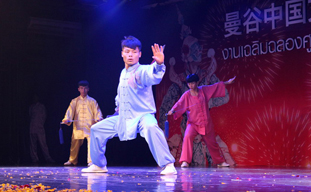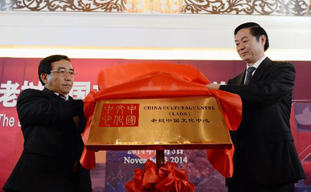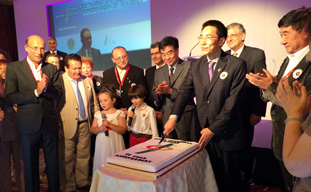Updated: 2015-02-17 13:22
(Beijing review)
Cultural localization
Usman's voice spread across the country when the Hausa version of Beijing Love Story premiered on the Nigerian Television Authority station on September 18.
"It is easier for local audiences to understand than foreign TV dramas with English subtitles," Usman stated. "I'm proud to do voice acting work, and my family is proud of me too."
Living in Beijing for more than a year, Usman has adapted himself to a local life, where social values and cultural dynamics are similar to his home country, though the history, politics and economy are totally different.
"China has been in the limelight since 2000. I think the Chinese Government is working hard to achieve development for the country and create good living conditions for the people. I really respect that," Usman said.
"People here who came from the one-child policy might not be as easy-going as my peers from bigger families," said Usman, the oldest child in his family, who has 14 siblings, a wife and a daughter. "But the love we have for our families is the same."
According to the agreement between the two countries, the Nigeria Cultural Center was built in Beijing in May 2012, becoming the first African culture center in China. The first Nigerian Cultural Week kicked off in Beijing in December 2012. The equivalent China Cultural Center in Nigeria was opened in Abuja by Zhang Dejiang, Chairman of the National People's Congress Standing Committee, on September 18 this year.
Usman participated in the second Nigerian Cultural Week in Nanjing, east China's Jiangsu Province, on October 14-18. In addition to indigenous dances, the Western African country also showcased its handicrafts and local delicacies.
"We started to get to know about China through the China Cultural Center and the Confucius Institute. Similarly, I hope that the Nigeria Cultural Center and Nigeria Cultural Week will help more Chinese people know about my country," Usman said. "For Chinese people, visiting Nigeria is like an adventure. We have more than 500 dialects and various cultural events all year round."
"I believe that continuous interpersonal exchanges can definitely benefit both countries," he added.



